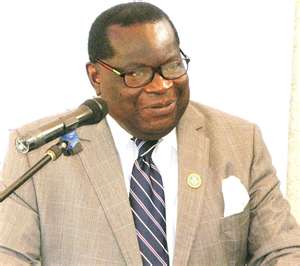An economic expert from Chancellor College has slammed last week’s decision by Reserve Bank of Malawi (RBM) to hike the country’s bank rate, saying the move will only make any attempts towards economic recovery to be far-fetched.
RBM has, however, defended its decision which, it says, was made based on thorough research.
Following a Monetary Policy Meeting, RBM last week announced an increase in the bank rate to 25 from 21 percent as a monetary policy stance necessary to contribute to government’s efforts to realise the objectives of the economic recovery plan through stabilisation of the kwacha and anchoring of inflation.
But speaking in an interview with The Business Times yesterday, Chancellor College Associate Professor of Economics Ronald Mangani said hiking the bank rate was a wrong treatment to an infection whose cure should be a reversal of the currency floatation.
“The current inflationary trend is not due to an increase in aggregate demand. So that cannot be controlled through the control of money supply. The inflationary pressure is clearly due to the continued depreciation of the domestic currency,” said Mangani.
He said recent trends show that the increase in the bank rate from 13 percent per annum to 16 percent per annum in May 2012, then to 21 percent per annum in July 2012 helped in the contraction of bank credit and a slowdown in money supply growth but that the decline money growth has not dampened inflation.
He predicted that the inflationary pressure will persist even after the bank rate hike as the exchange rate remains floated and the authorities are unable intervene due to the absence of foreign exchange reserves.
He said several research papers have stressed the fact that money supply is unimportant in the control of inflation in Malawi such that the quantity theory of money does not actually hold.
Mangani said the papers have also indicated that the exchange rate is the simple most important factor in the price formation process, in that currency depreciation instantaneously leads to inflation.
He said the authorities have increased the bank rate in order to be seen to be doing something about the inflation which is getting out of hand.
“The decision is located in the belief for one-size-fits-all solutions, based on the belief that the only way to control inflation is by controlling money growth through demand management. Unfortunately this policy intervention is only doing harm to the economy, as fewer and fewer investments will remain viable at very high interest rates,” said Mangani.
“Obviously, the banking sector will react to the bank rate increase by raising lending rates. Individuals and firms with existing loan liabilities will bear the brunt, and they will not find it easy to service them,” said Mangani.
He said the natural response by some companies would be to cut on the cost of labour, in order to accommodate the rising cost of capital.
“The result will be capacity under-utilisation, disinvestment and economic non-recovery. These developments cannot be welfare enhancing at all,” said Mangani.
But RBM Spokesperson Ralph Tseka said MPC decisions are based on extensive research and analysis of macroeconomic variables.
“Therefore, the decisions that the MPC took is the best decision based on available information,” said Tseka.
Malawi Confederation of Chambers of Commerce and Industry (MCCCI) Chief Executive Officer Chancellor Kaferapanjira last week defended the move by RBM to hike the bank rate, saying market borrowing from banks had reached alarming levels and were fuelling inflation.





No comments! Be the first commenter?